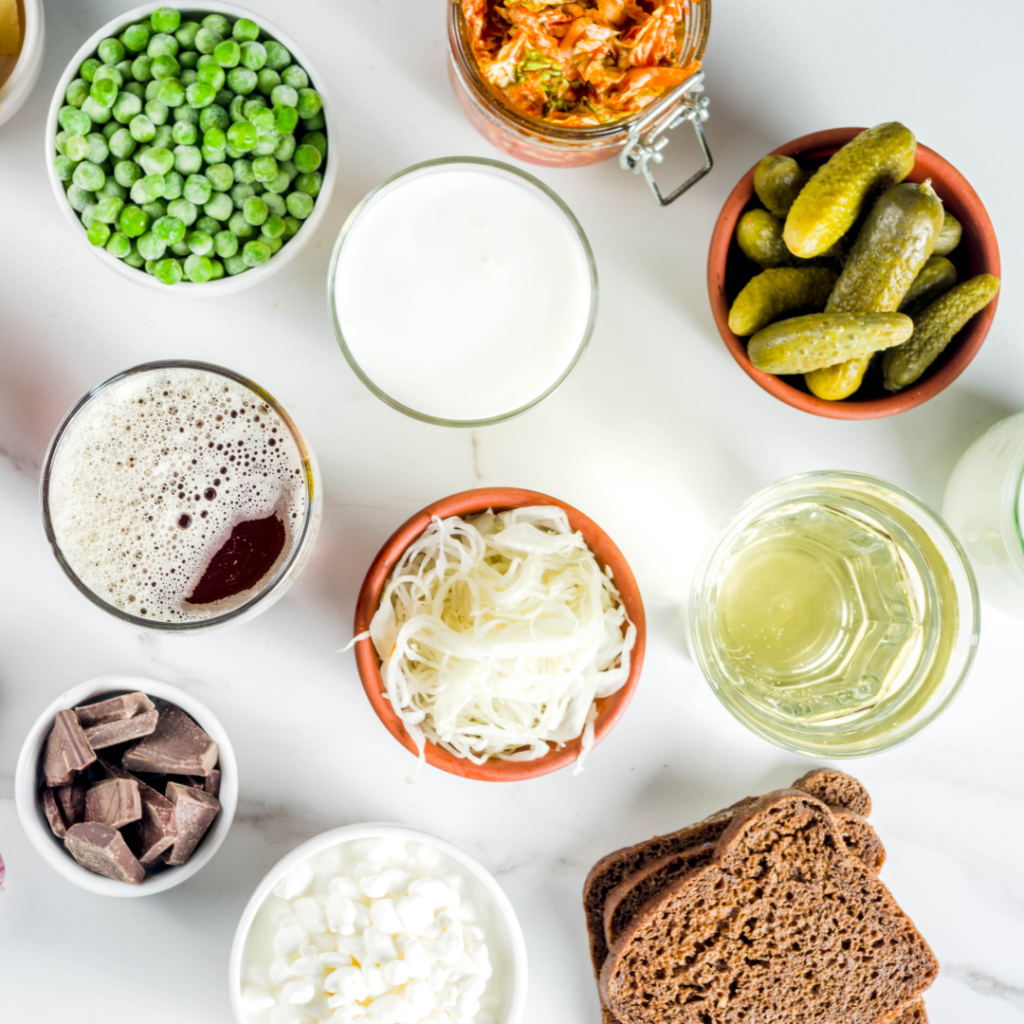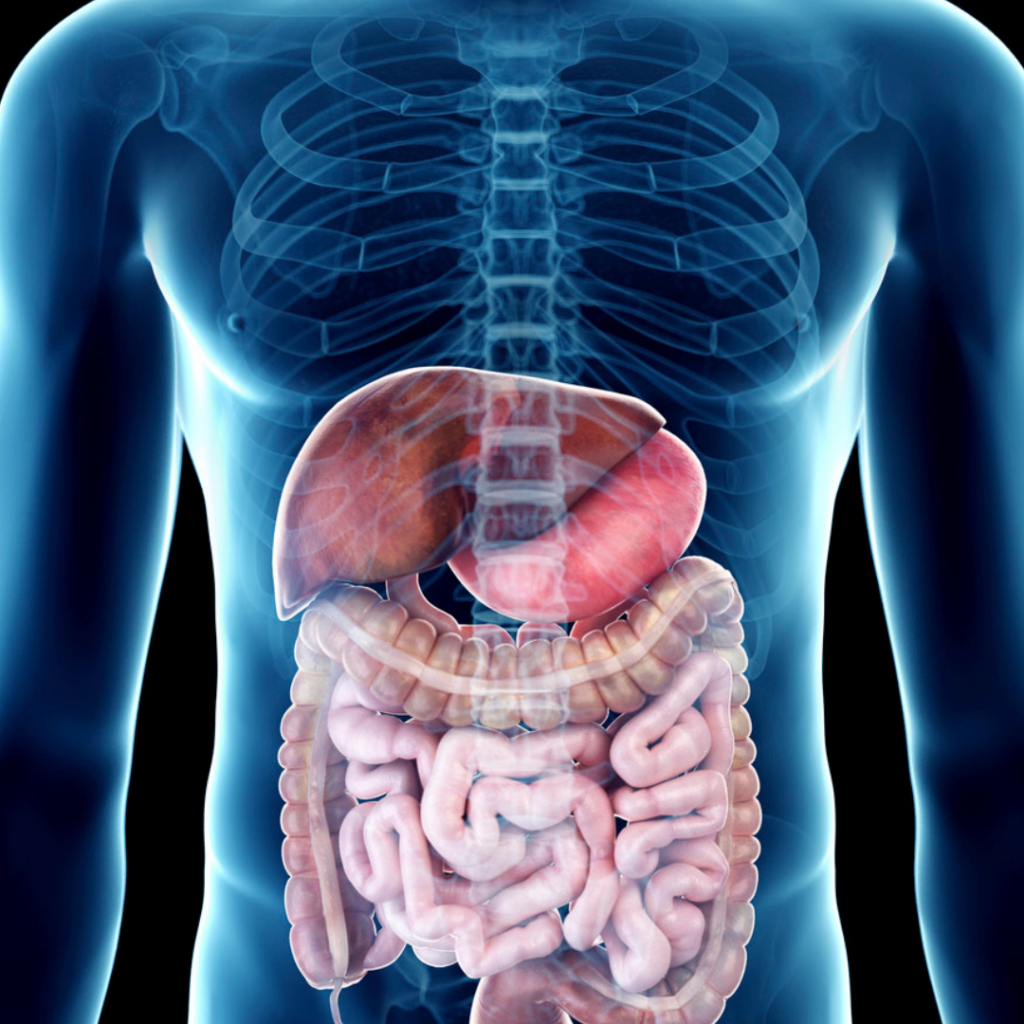
About Probiotics
What Are They | What Do They Do | How Do They Work | Strains | Benefits | How Should You Take Probiotics | How Should You Take Supplements | Powdered Supplements
Probiotics
Probiotics are live microorganisms which provide health benefits when eaten in sufficient amounts.
There are about 39 to 300 trillion bacteria living inside us. The majority of these bacteria are harmless and many reside in the gut. Probiotics are a type of friendly bacteria that keep harmful microorganisms in check. Also, they help to enhance our immune function.
Probiotics can be found in different foods and drinks such as:
- Yogurt
- Sourdough bread
- Cottage cheese
- Buttermilk
- Fermented sauerkraut
- Kimchi
- Kefir
- Kombucha

From the mid-1990s, clinical studies have suggested that probiotics may help delay the onset of allergies in children. Similarly, they may help in the treatment of other diseases as well.
What Do Probiotics Do
There is a complex ecosystem of microorganisms in our gut. This ecosystem is called the gut microbiome or gut flora. It includes bacteria, fungi, and viruses.
In fact, every person’s microbiome is unique. Most of the gut microbiome are found in the large intestine.
The gut microbiome carry out many important functions. It manufactures vitamin K and several of the B vitamins. Also, the microbiome performs metabolic functions and forms short-chain fatty acids.
Diet affects the microbiome, and an unbalanced microbiome has been linked to many diseases. Probiotics can keep your gut microbiome balanced, boosting your overall health. In addition to this, they can also reduce inflammation.
How Do Probiotics Work
The gut microbiome can become unbalanced in two different ways. First, good bacteria can be eliminated, for example through a course of antibiotics, leading to an imbalance in the gut flora. Second, bad bacteria, introduced through food for instance, can overtake the gut’s good bacteria. This also leads to an imbalance in the microbiome.
Probiotics help keep you healthy by replacing good bacteria and by maintaining the balance in your microbiome.

A balanced microbiome strengthens the gut wall by producing short-chain fatty acids. Furthermore, a strong gut wall stops bad bacteria from entering your bloodstream. As a result, probiotics work to enhance your immune system.
Types Of Probiotics
Probiotics are usually bacteria but some types of yeast can act as probiotics as well.
Specifically, there are seven main genera of probiotic bacteria. They are:
- Lactobacillus
- Bifidobacterium
- Saccharomyces
- Streptococcus
- Enterococcus
- Escherichia
- Bacillus
Of these, the most common are lactobacillus and bifidobacteria.
Each genus of probiotic bacteria contain different species. Also, each species contain many strains.
Probiotics are identified by their strains. The labels on probiotic products include the specific strain, the species, and a letter-number strain code.
Each strain can have a different effect on the body. Some supplements contain a combination of different strains. Consequently, it is important to read the labels of a probiotic product before adding it to your daily regimen.
Benefits Of Taking Probiotics
Research into probiotics shows that they can provide benefits in the treatment or prevention of multiple diseases. Some of these include:
- Irritable bowel syndrome (IBS)
- Diarrhea
- Constipation
- Urinary tract infections
- Vaginal infections
- Lactose intolerance
- Gum disease
- Eczema in children
Probiotics may help with the treatment of irritable bowel syndrome, however, research into their effectiveness delivers mixed results. Multi-strain probiotic supplements taken for more than 8 weeks appear to provide improvement in IBS symptoms. On the other hand, recent research shows that the use of a probiotic blend improves the symptoms of eczema and atopic dermatitis in children.
How Should You Take Probiotics?
Probiotics can be taken in several ways. They are now available in different forms:
- Food
- Drinks
- Powders
- Capsules
Foods and drinks with probiotics can be eaten during mealtimes. You can even snack on probiotic foods throughout the day. Some powdered probiotics can be mixed with your regular meals and drinks. It is best to check the label of your probiotic food and drink and see if it contains live and active cultures.
Probiotic supplements can be taken with a prebiotic for added health benefits. Prebiotics are complex carbohydrates. In other words, they nourish the good bacteria in your gut. Resistant starches and pectin are examples of prebiotics.
Probiotic Supplements
Research into the health benefits of probiotics is ongoing. However, the work is challenging because all the types of microbiomes in the human gut have not been identified yet. Also, everyone has a different gut flora. This makes categorization even more challenging.
With that said, probiotics are increasingly available as supplements. These supplements often include specific strains for targeted health benefits. Other formulations combine multiple strains for overall health and immune support.
Since probiotics are regulated under different guidelines from medications, it is important to research the claims listed on a supplement. Talk to your healthcare practitioner if you have any questions about adding a supplement to your diet.
Probiotic Supplement for Eczema
ProZema is a probiotic supplement that reduces the symptoms of eczema in children aged between 4 and 17 years old.
ProZema is a patented blend of three unique probiotic strains:
- Bifidobacterium lactis CECT 8145,
- Bifidobacterium longum CECT 7347, and
- Lactobacillus casei CECT 9104
These strains feature antioxidant and anti-inflammatory properties and promote microbiome diversity. Together, all three strains work to relieve the itchiness and red patches characteristic of eczema and atopic dermatitis.
ProZema is clinically proven to reduce the symptoms of atopic dermatitis and eczema. In addition, ProZema received the Seal of Approval from The Dermatology Review Panel which is a panel of independent dermatologists from across Canada.
Available in powder form for added convenience, ProZema has a neutral taste. It mixes easily with foods and drinks for effortless consumption.
Learn more about ProZema here.
References:
Harvard Health Publishing: Health Benefits of Taking Probiotics
Mayo Clinic: What Are Probiotics and Prebiotics?
Cleveland Clinic: Probiotics
